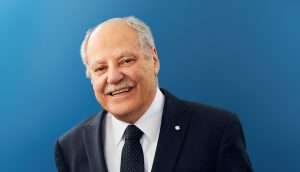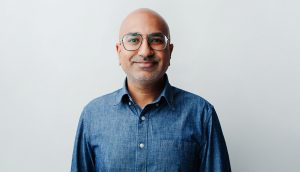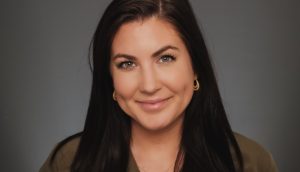When asked what he’d miss when he leaves his role as GroupM’s chief digital officer in January, Rob Norman instead outlined exactly what he wouldn’t miss. MiC reached out to the outspoken media executive to get some parting shots on a few of the issues that are shaping media in the months ahead, and got unvarnished opinions on how brands’ media strategies need to evolve, Google and Facebook’s digital ad reign and how agencies can prepare for the future.
This interview has been condensed for length and clarity.
You’ve been in the agency world for more than 30 years. What are you saddest to leave behind?
Well, the amazing part about going into a consultant role is that I’m actually planning to leave behind the parts I don’t like. It’s like being served ratatouille when you don’t really like zucchini that much. I get to take away the zucchini.
So what’s the zucchini for you?
Things like brand integrity, brand safety, viewability, ad fraud, and all of those have been very, very significant. And it’s possible to have something in your work life that you should feel absolutely engaged with and take absolute responsibility for it. And at the same time, you will be so happy to never utter a word about it again. All of those things, I am very much looking forward to leaving behind.
Well, you’re not retired yet, so let’s talk about them. How do you think the viewability and ad fraud issues will play out in 2018?
There will be shrinking demand for bad supply. It will be harder and harder to sell crap to uninformed people because the population of the informed will increase significantly, and the detection tools of the informed will improve in their significance. It’s the same way you can say that in 1963, nearly every cyclist was doping at some point or another. In 2017, there might be one or two. So the problem may never go away completely, but it will shrink to an amount that is negligible.
In brand safety, we will see a massive determination with as-yet-unknown outcomes from the major platforms, by which I mean Google and Facebook, on the issue. They’ve been unbelievably focused and successful in selling the characteristics of their platform that make them effective for both consumers and for advertisers. They now have to apply perhaps not equal but immense resources to understanding the potential for misuse of their platforms and doing every conceivable thing they can to prevent that. It will be an incredible cost in terms of time and money, but better for them because you can always find more people to spend time, and that money can always be earned back.
How do you see the relationship playing out between TV and digital in the next year?
There’s something digital in everything now. There is no question that every medium benefits from extending itself and the relationships it creates for advertisers onto digital platforms. It benefits NBC to use Snapchat to deliver content around the Olympics. I think the question you’re really asking is, do I see a different relationship between everybody else and Google and Facebook from the one that’s perceived to exist at the moment?
And you do?
Yes, I do. At the moment, Google and Facebook hold the whip hand economically, but they’ve lost it [in terms of reputation] in the last few months. I suspect that Google and Facebook will start to take a slightly different economic calculus of the industry in particular, and that will help other people. The question is how long will that take, and to what degree will it occur? I don’t have that answer.
We’ve seen the recurring theme of agencies facing competition from consultancies and brands bringing media in-house. Do you think either will get worse or better in 2018?
There’s something kind of Newtonian about this; an object that’s in motion stays in motion. When people say, “Do you think agencies need to change,” inherently in the question is “Do you think agencies are static and not changing?” I believe very firmly that agencies are evolving. Many are unrecognizable from even five to 10 years ago. From a media agency point of view, the thing we do extremely well is that we see every category, we see every channel, and as a consequence, we have a deep and agnostic view of what works. We are so used to trading, both on a programmatic and a reserved media basis.
There’s a thing that the consulting enterprises distinctly lack. It’s that market level of experience. I could ask a consultancy how much insight they had into what they think CBS’s demand is likely to look like on Wednesdays between 10 and midnight next February, and they’d say “Well, we don’t know,” and I’d be able to say, “Hey, I do.” From the information and the data we’ve got, aggregating many competitive media environments, we know what’s going to be soft and what’s going to be competitive. We’re granular.
























